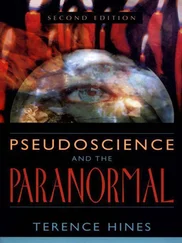There was justified pride in the intelligence, neutrality and inviolability from corruption of Whitehall. ‘The Greeks, like many other races, lack a competent civil service with established traditions of hard work and integrity,’ wrote Sir Daniel Lascelles from the Athens embassy in 1945. After years of Turkish domination, their political tradition was ‘to evade and thwart governmental authority’. It was said in their favour, continued Lascelles, that Greeks had ‘plenty of guts. So, I believe, have the Irish.’ There were a few exceptions to this patriotic unity: Goronwy Rees, who spied for Moscow in 1938–9, disparaged the land mass of England, Scotland and Wales as ‘Bird’s Custard Island’ because it was thick, tasteless and sickly. Millions of his compatriots however believed that British was best. Sometimes for sound reasons, but often with the benefit of self-assured inexperience, they presumed that the English language was the richest in the world, and that the nation’s policemen, beer, pageantry, countryside, sense of fair play, engineering, handshakes, comedians and parliament were unmatched. Nationalist pride permeated every social group: ‘the lags were as uncritically patriotic as book-makers or actors’, said Wilfred Macartney of his fellow inmates in Parkhurst prison, where he was detained in 1927–35 after trying to obtain RAF secrets for Moscow. ‘Everything English was best, from a Rolls-Royce to a cigarette.’ 52
Such unreal assumptions vitiated national influence throughout the Cold War period. ‘The British have a great liability: so many of us still believe in the “effortless superiority” … of all British men and some women,’ wrote the sociologist Michael Young in 1960. ‘This terrifying attitude is not confined to Bournemouth. Many solid working-class people have it too, Labour voters as well as Tory.’ When, during the Suez crisis of 1956, Young conducted an opinion survey in the inner London suburb of Hornsey, he was ‘dismayed by the number of manual workers who backed Eden wholeheartedly, talked of Wogs, Dagoes and Gyppies as vituperatively as they did when they were “seeing the world” in the Army’. 53
Pretensions of English singularity, coupled with the delusion that public institutions could be made inviolate from continental influences, beset the cruder politicians, virulent editorial journalists and the more ignorant voters. Officers in Special Branch may have been hoodwinked by such ideas, but they made less headway in MI5, where most officials were well-travelled linguists rather than the blockheads imagined by the agency’s detractors. Diplomatists from Crowe, Vansittart and Cadogan downwards, though they were patriotic, saw the best hopes of peace lay in supra-nationalism, not nationalism. ‘The only sure guarantee against a renewal of fratricidal strife lies in the realisation, not only of the economic, but of the social solidarity of Europe,’ Don Gregory (the former Foreign Office expert on Soviet Russia) wrote in 1929. He warned against the special danger of Britain being lulled into complacency because ‘we are almost the only Europeans who have no traditional hatreds, who have no land frontiers to bother about, who need never be dragged into a war unless we wish to be’. European ideas and power had mastery over British destiny. 54
CHAPTER 4
The Vigilance Detectives
The first English network of communist espionage reporting to Moscow came into existence because of a commotion in a Pimlico side-street in 1909 some eight years before the Bolshevik revolution in Russia. Wolverhampton, Chatham, Hornsey and Bristol – not Cambridge colleges – spawned the earliest Soviet spy ring. Renegade policemen worked for Moscow first. The covert activities of these policemen and their journalist associates, and the way that MI5 handled them, is fundamental to understanding secret service priorities and techniques in the seventy years before the dismantling of the Soviet Union in 1991.
The uprising of the Metropolitan Police
One night in the year of the foundation of the British secret services two patrolling constables detained two rowdy men who were ringing doorbells in Pimlico. The miscreants were taken to the local police station, where they were identified as neighbours who had been locked out by their irate wives after carousing too late at the pub. The Metropolitan Police inspector on duty that night at Pimlico, John Syme, sent the men home without charge. The rumpus ought to have ended there. Instead, it led to rebellion inside the Metropolitan Police, demonstrations, strikes and the first organized network of Englishmen spying for the Bolsheviks.
After Syme had rebuked the constables for being officious, they made counter-complaints against him. A tortuous disciplinary procedure ended with his demotion to the rank of sergeant. When he protested, he was suspended from duty for insubordination. In 1910 he was dismissed for declaring that he would take his grievances outside the force to his MP. Sir Edward Henry, the fingerprint pioneer who was Chief Commissioner of Metropolitan Police, threatened resignation in 1911 when Winston Churchill, as Home Secretary, seemed inclined to reinstate Syme. In June that year Syme was arrested after sending a letter to Churchill which threatened murder. He was put under police watch lest he offer violence to King George V. He and his wife Nellie were evicted from their police flat. He protested at the Palace of Westminster. There were terms of imprisonment. Twice he went on hunger-strike. He was sent to Broadmoor criminal lunatic asylum. Scotland Yard’s determination to crush a man who had, under stress, threatened violence is comprehensible: a barman shot and wounded Sir Edward Henry in 1912 after his application for a licence to drive a motor-bus had been rejected at Scotland Yard.
Jack Hayes, a Liverpool MP and former London policeman, using the language of racism and sportsmanship that connoted manliness to his generation, told the House of Commons in 1923: ‘Inspector Syme, one of the whitest men who ever wore a police uniform, a man who has undergone untold suffering, was really playing the game as an inspector of the Metropolitan Police.’ Three years after Syme’s death in 1945, his misfortunes were again debated in parliament. ‘I remember him away back in the years before the first world war – tall, fine, handsome he was, and … very clean in his character,’ said the communist MP Willie Gallacher. ‘Injustice wore down that strong body and practically destroyed the mind and soul of that fine man.’ 1
Syme’s treatment was seen as a travesty by many London policemen, who projected a workplace association to resist victimization and favouritism. The authorities responded in 1913 by forbidding policemen from union membership, under penalty of dismissal. Money became a pressing issue, too. Although policemen considered themselves to be a class above the urban labouring poor, they were paid at similar levels. From the declaration of war in 1914 to the outbreak of the Russian revolution in 1917, the cost of living in London rose by 76 per cent but police pay by only 20 per cent. Policemen resented losing prestige to munitions workers earning three times as much. They fainted on duty from hunger.
These pressures led to the formation of the National Union of Police and Prison Officers (NUPPO), which declared a strike in August 1918. Almost all of the 12,000 Metropolitan Police withdrew from duty. So, too, did the 1,200 men of the City of London force guarding the capital’s financial institutions. These police ‘revolters’ were, thought Hensley Henson, the politically minded bishop, ‘a very ominous sign of social disintegration’. The wartime coalition government, which feared that police disaffection would spread to the army, sent a detachment of Guards to protect Scotland Yard from the mutineers. Lloyd George, as Prime Minister, conceded most of the strikers’ demands on pay, pensions and war bonuses, and was understood by negotiators to have given an oral promise of union recognition. Sir Edward Henry, who had underestimated NUPPO’s support, was replaced as Chief Commissioner by General Sir Nevil Macready. Hayes and other policemen were soon riled by Macready’s declared intention to raise the force’s discipline to the standard of a Guards regiment. 2
Читать дальше












